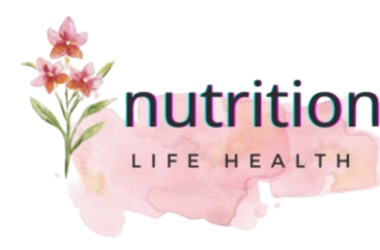Maximizing Performance Through Proper Sports Nutrition Practices
Maximizing Performance Through Proper Sports Nutrition Practices
Introduction
Proper sports nutrition is vital for athletes who strive to achieve peak performance and optimal results. Whether you are a professional athlete or participate in recreational sports, understanding and implementing effective nutrition strategies can significantly impact your performance, endurance, recovery, and overall health. In this article, we will explore the essential performance optimization strategies and nutritional guidelines for athletes.
Performance Optimization Strategies
1. Fueling for Exercise
One of the key factors in maximizing performance is ensuring adequate fueling before, during, and after exercise. Carbohydrates are the primary source of energy for athletes and should form a significant portion of their daily caloric intake. Including complex carbohydrates such as whole grains, vegetables, and fruits in your diet provides sustained energy and helps maintain stable blood sugar levels. It is important to consume a balanced meal containing carbohydrates, protein, and healthy fats 2-3 hours before exercise to optimize energy levels.
During prolonged endurance activities, consuming easily digestible carbohydrates such as sports drinks or energy gels can help maintain energy levels and delay fatigue. After exercise, replenishing glycogen stores with carbohydrates and aiding muscle recovery with protein-rich foods is crucial. Consuming a post-workout meal or snack within 30 minutes of exercise can enhance recovery and support muscle growth.
2. Hydration
Proper hydration is essential for optimal performance. Dehydration can lead to fatigue, decreased endurance, and impaired cognitive function. Athletes should aim to drink fluids throughout the day and specifically hydrate before, during, and after exercise. Water is usually sufficient for activities lasting less than an hour, while sports drinks can be beneficial during intense or prolonged exercise to replenish electrolytes lost through sweat. Monitoring your body weight before and after exercise can help determine fluid losses and guide your hydration strategy.
3. Nutrient Timing
The timing of nutrient consumption plays a crucial role in maximizing performance and recovery. Consuming a balanced meal or snack containing carbohydrates and protein within 1-2 hours before exercise provides fuel for the workout and supports muscle repair and growth.
Additionally, post-workout nutrition should be prioritized to promote muscle recovery and replenish energy stores. Including lean proteins, carbohydrates, and a small amount of healthy fats in your post-workout meal can optimize recovery and support muscle adaptation.
4. Adequate Macronutrient Intake
Athletes require a balanced intake of macronutrients, including carbohydrates, proteins, and fats, to meet their energy demands and support various physiological functions.
Carbohydrates: Complex carbohydrates, such as whole grains, legumes, and starchy vegetables, are excellent sources of sustained energy. Athletes should aim to consume around 45-65% of their daily calories from carbohydrates.
Proteins: Adequate protein intake is crucial for muscle repair, growth, and recovery. Sources of lean protein include poultry, fish, lean meats, dairy products, and plant-based options such as beans, lentils, and tofu. Athletes should aim for 1.2-2.0 grams of protein per kilogram of body weight per day.
Fats: Healthy fats, such as those found in nuts, seeds, avocados, and olive oil, provide a concentrated source of energy and support hormone production. Athletes should include a moderate amount of healthy fats in their overall diet.
Nutritional Guidelines for Athletes
1. Individualized Approach
Every athlete has unique nutritional needs based on their sport, training load, body composition, and specific goals. Working with a registered dietitian can help develop a personalized nutrition plan tailored to your requirements and optimize your performance.
2. Micronutrient Considerations
In addition to macronutrients, athletes should pay attention to their micronutrient intake, including vitamins and minerals. Antioxidant-rich fruits and vegetables, whole grains, lean proteins, and dairy or plant-based alternatives provide valuable micronutrients that support overall health and performance.
3. Recovery Nutrition
Post-workout recovery nutrition is critical for repairing damaged muscle tissues, replenishing energy stores, and promoting adaptation. In addition to consuming a balanced meal or snack, incorporating a combination of carbohydrates and protein in the immediate post-workout period can enhance recovery.
4. Food Quality
Emphasize the importance of consuming whole, minimally processed foods rather than relying on highly processed or fast food options. Whole foods provide a rich array of nutrients, antioxidants, and fiber that are beneficial for overall health and performance.
Conclusion
Proper sports nutrition is not only essential for athletes to achieve peak performance but also for their overall health and well-being. By implementing effective performance optimization strategies and following nutritional guidelines tailored to their individual needs, athletes can maximize their potential, improve endurance, support muscle growth, and enhance recovery. Remember, nutrition is a key pillar of athletic success, and investing in it will undoubtedly contribute to reaching your goals.



 Ctrl
Ctrl